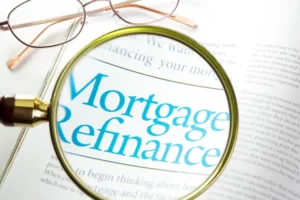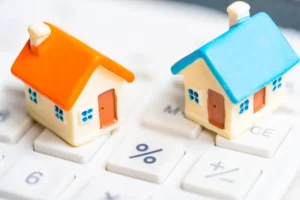Mortgages –
So Much More Than Just Rate!

Most people want a house to call their own, and make a home. Unfortunately the majority of people are not going to be able to pay for it all up front in cash.
his is why we have mortgages. A mortgage is a loan made to assist a borrower to purchase a property. The property is held as collateral and interest is charged on the loan. Typically a mortgage will be paid back over 25 years (this is called the amortization), and the amount of interest charged is renegotiated every 1-10 years (this is called the term). Over the long run, borrowing money isn’t cheap, despite interest rates being at an all time low!
The fact remains, that people want a home, they do not want a mortgage, but they need one in order to get a home.
So, if you need to borrow money in order to buy a property, your number one goal should be to keep your cost of borrowing as low as possible.
Your number one goal should be to keep your cost of borrowing as low as possible. Keep this in mind, and repeat it to yourself, as it is the most important lesson when you are shopping for the right mortgage.
Despite what we have seen and heard over the years from our friends and family, and the various ads on TV, this doesn’t always mean choosing the mortgage with the lowest rate. Although choosing a mortgage with a low rate is a part of lowering your borrowing costs, it’s not the only factor. And focusing solely on this, could end up costing you dearly in the end.
When looking to lower the overall cost of borrowing throughout the life of your mortgage, there are many factors that should be considered. Here are some of them.
- How long do you anticipate living in the property? This could help you decide an appropriate term. An important thing to also consider, and ask the person who is helping you with the mortgage, is “how long does the average person in my demographic stay in his property/mortgage”
- Do you plan on moving for work, do you need flexibility down the road with your mortgage?
- What does the prepayment penalty look like if you have to break your term? This is probably the biggest factor in lowering your overall cost of borrowing.
- How is the lender’s interest rate differential calculated, what figures do they use? It is important for you to understand how your penalty will be calculated.
- What are the prepayment privileges?
- Can you make lump sum payments, or increase your monthly payments, and how is the interest recalculated when you do pay extra?
- Is the mortgage a collateral charge? This could mean you won’t be able to switch the mortgage upon renewal to another lender without incurring new legal costs. It also means a whole world of other things that you may not be aware of and probably should. Check out this post to learn more about Collateral Charge Mortgages
- Should you consider a fixed rate, variable rate, HELOC, or a reverse mortgage?
- What is the size of your downpayment? Coming up with more money down might lower (or eliminate) mortgage insurance premiums. But this might not necessarily be as advantageous as it used to be in the previous world before all of these mortgage rule changes. You should be asking and finding out more!
What you will often find is that mortgages with the lowest rates, can have potential hidden costs built in to the mortgage terms that will cost you a lot of money down the road. The difference between 3.59% and 3.84% may seem huge. Find out what the actual difference in payment is going to be. If you aren’t sure, then ask your mortgage professional, and if they aren’t sure, find a new mortgage professional…..
The cost of a 0.25% difference in interest rate, amounts to $13.10 per every 100,000$ borrowed.
Most of the time you will not have one lender charging 0.25% more than another, the difference is likely less than that, 0.1 or 0.05, which sure could save you a few bucks a month, but what about the fine print?
While taking a longer fixed rate term and having to break the mortgage halfway through the term could potentially cost you thousands (tens of thousands). And this is really bad for your overall cost of borrowing.
As a mortgage consumer who will potentially buy a handful of houses in your life, your best bet is to work with an independent mortgage professional who has your best interest in mind and knows exactly how to keep your cost of borrowing as low as possible. A mortgage is so much more than just a low rate, it’s really about the fine print.
Thank you.




